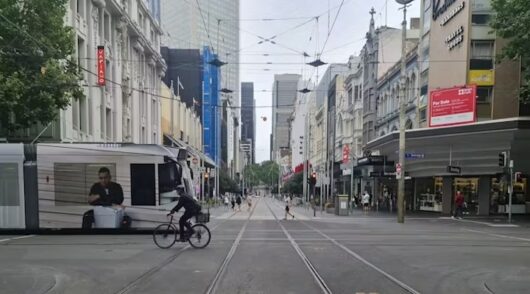Despite falling sales, sharemarket routs and increasing instability in the UK retail sector, which many attribute to the uncertainty of Brexit, some British retailers seem to be breathing slightly easier this week.
Following the presentation of UK Prime Minister Theresa May’s Brexit plan, the British Retail Consortium urged politicians to accept it rather than face the grave consequences of an exit from the European Union without any deal whatsoever.
Downing Street said the new proposal envisioned “a free trade area and deep co-operation on goods, with zero tariffs and quotas”.
Last month, credit ratings agency Moody’s warned that “a disorderly exit from the EU” could lead to currency devaluation and delays at ports, resulting in a hit to economic growth and consumer confidence.
US shoppers divided on Black Friday
Most US consumers plan to give Black Friday, the traditional start of the Christmas shopping season, a miss this year, with just 38 per cent of respondents to a Reuters/Ipsos poll saying they would go shopping that day.
According to another poll, by OpenX and The Harris Poll, most Americans will be more interested in Cyber Monday deals, which reveals the changing patterns around shopping generally.
A quiet Black Friday is not a harbinger of a slow Christmas. Shoppers are expected to spend US$1 trillion this holiday season, according to Forbes, and most plan to spend more this year than they have in previous years.
Flipkart CEO resigns over scandal
The co-founder of Flipkart, the massive online retail operation in India acquired by Walmart this year, has left the company following an allegation of sexual assault dating back a few years.
Binny Bansal has denied the accusation, but has stepped down from his position as CEO of the company he co-founded in 2007. Walmart, which bought a US$16 billion ($22 billion) controlling stake in Flipkart Group in May – the largest single investment in its history – said that although the investigation did not find evidence corroborating the accusation, the company felt it did reveal lapses in judgment and a lack of transparency on Bansal’s part.
The Flipkart acquisition has been hugely important for Walmart, giving it broad access to India’s billion-strong market, as well as political and economic influence in that nation.
Ocado tips global ambitions
Online supermarket Ocado, which earlier this year signed a major deal to supply technology to US retailer Kroger, sees opportunities to strike similar deals with established grocers throughout the rest of the world, including Australia.
Chief financial officer Duncan TattonBrown said the British company was focusing on “some attractive opportunities – on top of the ability to sell more capacity to existing clients” and hinted that it was looking beyond the grocery sector.
Speaking at the Morgan Stanley Technology, Media and Telecoms conference in Barcelona last week, Tatton-Brown said: “Future innovation includes: how do we use the technologies, the capabilities that we’ve developed, in other areas. There could well be other uses in grocery, other uses in retail and, frankly, could well be in sectors well away from retail.”
Muji reopens huge flagship in Canada
Muji Canada is set to reopen its original Toronto flagship store in its original location but with almost four times the retail space. The Muji Atrium, opened four years ago as the company’s first location in Canada, will have 19,110sqft of space spread over two floors, and will be the largest Muji store outside of Asia.
“During the four years since we expanded to Canada, we opened seven additional stores and gradually increased our range of
products and services,” said Muji Canada president Toru Akita.
Causeway Bay tops rent survey
Causeway Bay in Hong Kong is now home to the world’s most expensive retail space. According to the annual Cushman & Wakefield survey of high-street retail rents, Causeway Bay has overtaken New York’s Fifth Avenue for the top spot, with rents of US$2671 ($3667) per sqft per year.
The calculations were completed during the second quarter of this year. What makes Causeway Bay’s performance on the list even more remarkable is that it was achieved as the retail rent market bottomed out after some three years of pressure from falling retail sales in the city.
In Australia, Sydney’s Pitt Street Mall made the list – at seventh place.






